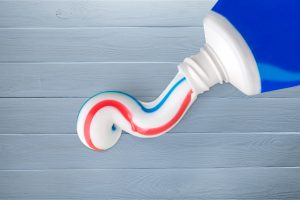Can You Name Every Type of Toothpaste? A Dentist Explains Each One!
July 7, 2018
 If there’s one thing about modern life that’s both a blessing and a curse, it’s all the choices we have. On one hand, it seems great that we can choose from so many options for every product at the grocery store. On the other hand, it can be confusing and overwhelming to make a decision. When it comes to all the toothpaste out there, most people would be hard-pressed to name each type, let alone decide which one is best for them. That’s where the expertise of a dentist comes in. Keep reading to find out what each toothpaste formula does and whether it would be right for you!
If there’s one thing about modern life that’s both a blessing and a curse, it’s all the choices we have. On one hand, it seems great that we can choose from so many options for every product at the grocery store. On the other hand, it can be confusing and overwhelming to make a decision. When it comes to all the toothpaste out there, most people would be hard-pressed to name each type, let alone decide which one is best for them. That’s where the expertise of a dentist comes in. Keep reading to find out what each toothpaste formula does and whether it would be right for you!
Whitening
Whitening toothpaste has a higher amount of abrasive material than other pastes and removes surface stains so your teeth look cleaner and brighter.
Use caution if you have particularly sensitive teeth or have porcelain veneers, as a whitening paste can scratch and dull their shiny surface.
Sensitive Formula
Cold-sensitivity is no fun. These formulas have ingredients such as potassium nitrate that block any cold sensations from reaching the nerve of the tooth.
In many cases, it takes 2-3 weeks of consistent use for them to work, so don’t give up if you don’t feel a difference right away!
Children’s Toothpaste
Children’s toothpaste comes in many different flavors and colors that appeal to children. Of course, anything that makes them more likely to brush twice a day is a worthwhile investment!
Remember, only use a pea-sized amount for children age 2-5, and just a light smear for children under two. That way you can make sure you’re using the right amount of fluoride to prevent cavities.
Tartar Control
Tartar is the hard, cement-like substance that builds up on your teeth and has to be removed professionally. A tartar control paste can reduce this buildup and make your cleanings a little easier. It seems to work better for some patients than for others, but it’s always worth a try!
Also, it’s important to note that sometimes tartar control formulas increase sensitivity, but in that case, it will subside soon after you stop using it.
Natural or Herbal
Natural or herbal toothpastes are helpful for anyone who has allergies to the ingredients used in regular formulas. Just be sure to check that it still has fluoride for cavity protection!
Fluoridated
Most toothpaste already contains fluoride, which is great because it’s crucial for strengthening the enamel and preventing cavities.
If you’re extra cavity-prone, a dentist can give you a prescription-grade toothpaste with a higher concentration of fluoride than store-bought options. When used correctly and consistently, these products can greatly reduce cavities.
Now that you know a bit more about the different types of toothpastes, you won’t feel so overwhelmed the next time you pick some up at the grocery store!
About the Author
Dr. Peter St. Clair has over 20 years of experience as a general, cosmetic and restorative dentist. He knows that when his patients have good hygiene habits and use the right products, they can largely prevent the need for extensive dental work. If you have any additional questions, he can be contacted via his website or at (978) 948-2030.
No Comments
No comments yet.
RSS feed for comments on this post.
Sorry, the comment form is closed at this time.







